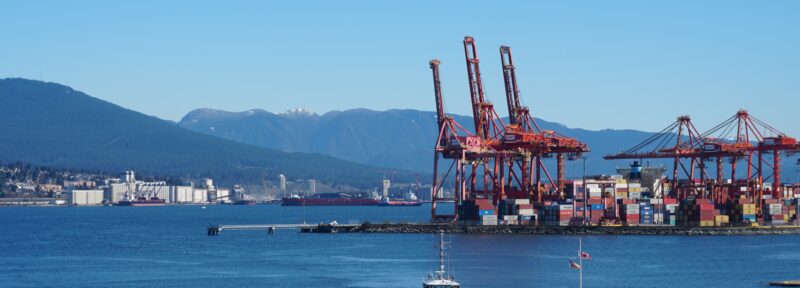Supreme Court Decision on Impact Assessment Act Puts Ocean and Vulnerable Ecosystems at Risk
OTTAWA—Today, the Supreme Court of Canada ruled in a 5-2 decision that much of the Impact Assessment Act is unconstitutional. “The decision is a blow to vulnerable ecosystems that Canadians share across the country,” says Chris Debicki, Vice President of Policy Development and Counsel at Oceans North. “Coastal and marine environments, which are often overlooked when it comes to the impacts from land-based projects, could be especially at risk.”
The Impact Assessment Act allowed the government to consider a variety of social and environmental factors—including climate change and cumulative effects—when assessing the potential impacts of large-scale industrial projects. The province of Alberta took the federal government to court over the Act, which became law in 2019, arguing that it infringed on provincial jurisdiction. The Alberta Court of Appeal ruled the law was unconstitutional in May 2022; the federal government then appealed the case to the Supreme Court.
David Wu, a lawyer at Arvay Finlay LLP who intervened in the case on Oceans North’s behalf, argued before the court that the Impact Assessment Act’s constitutionality was clear. The Fisheries Act, for example, gives the federal government broad powers to protect fish and fish habitat throughout Canada, which necessarily includes regulating the emissions that are causing ocean acidification and marine heatwaves. Furthermore, the impacts of large projects often extend beyond the boundaries of a single province (or even country), meaning the federal government can and must play a role in addressing them.
In the majority decision, the Supreme Court agreed that the federal government has an important role to play in regulating environmental impacts, but it ruled that much of the legislation was too broad and that the examination of whether a project should be subject to an assessment or allowed to proceed should be concentrated on areas over which the federal government has clear jurisdiction. However, as the dissent noted, it is difficult to properly assess the costs and benefits of a given project and come to an informed decision without assessing the project holistically, which includes assessing impacts on issues within provincial jurisdiction.
“We’re facing a climate change crisis and a biodiversity loss crisis at the same time, and it’s never been more important to understand the trade-offs we’re making when it comes to the natural world,” says Debicki. “As we develop resources in a more sustainable manner, we need strong frameworks to help protect the environment and each other. The federal government must return to the drawing board quickly and find a way to ensure that happens through new or amended legislation.”
For more information, please contact:
Alex Tesar
Communications Manager
Oceans North
[email protected]




